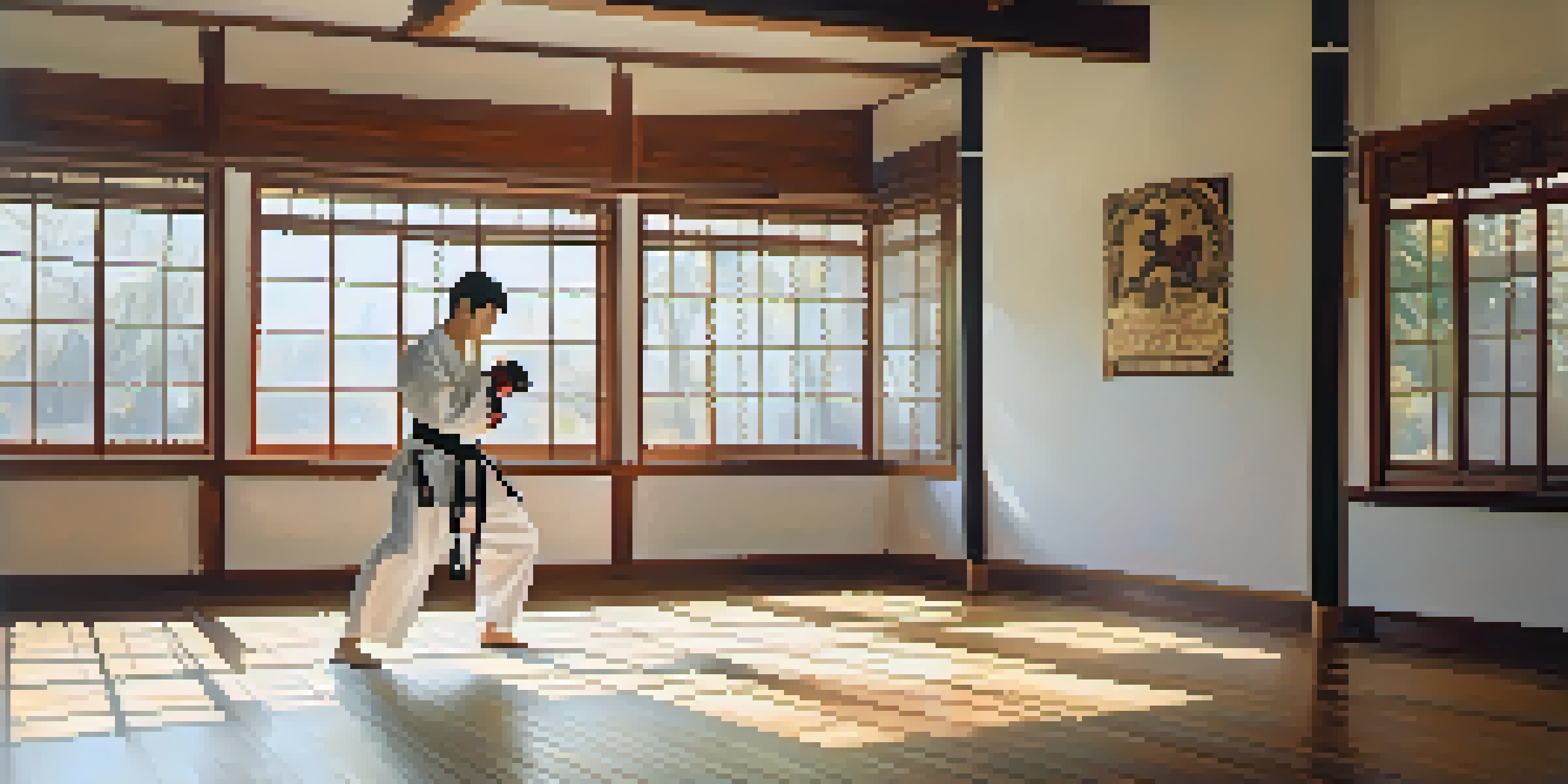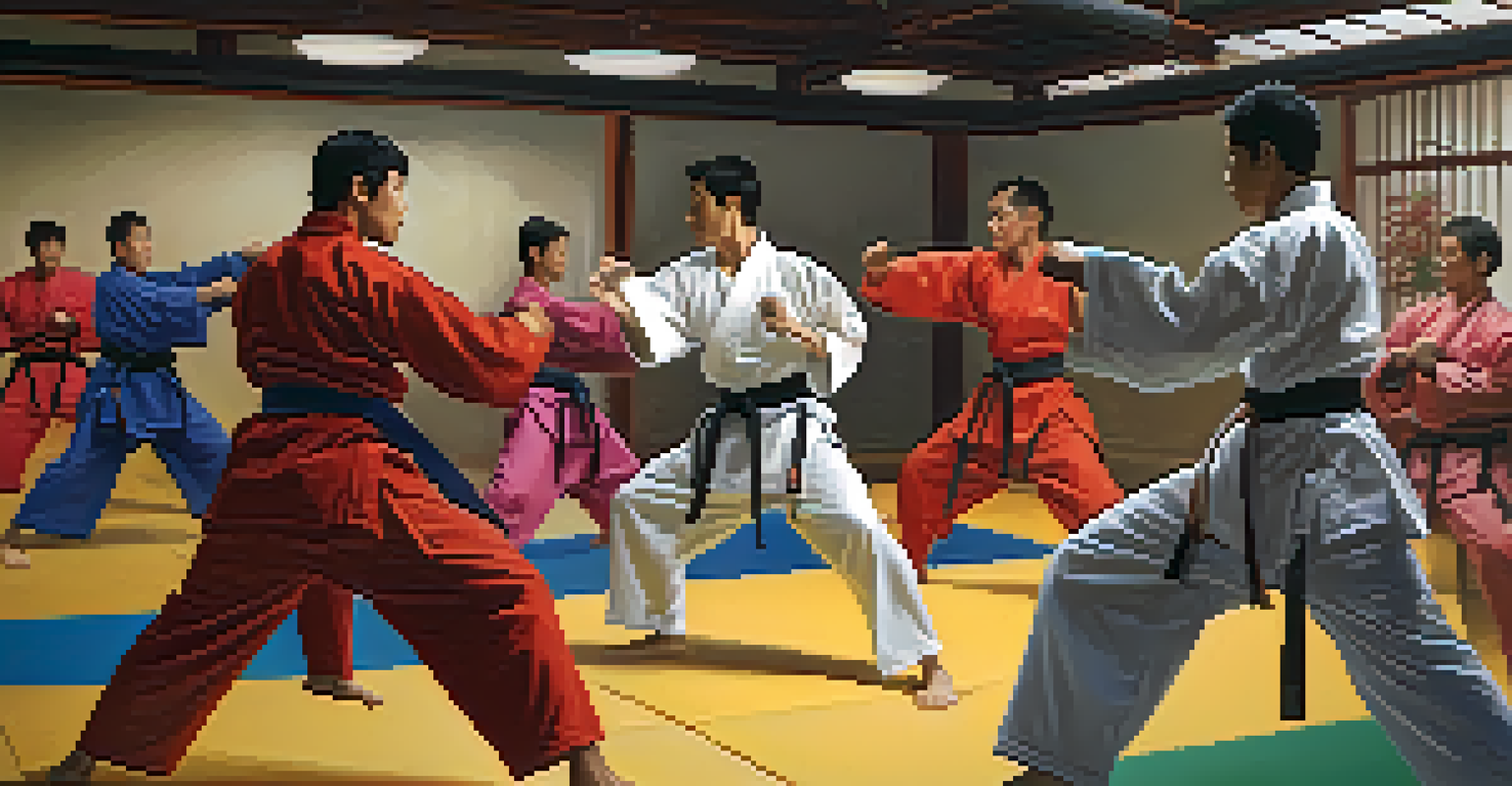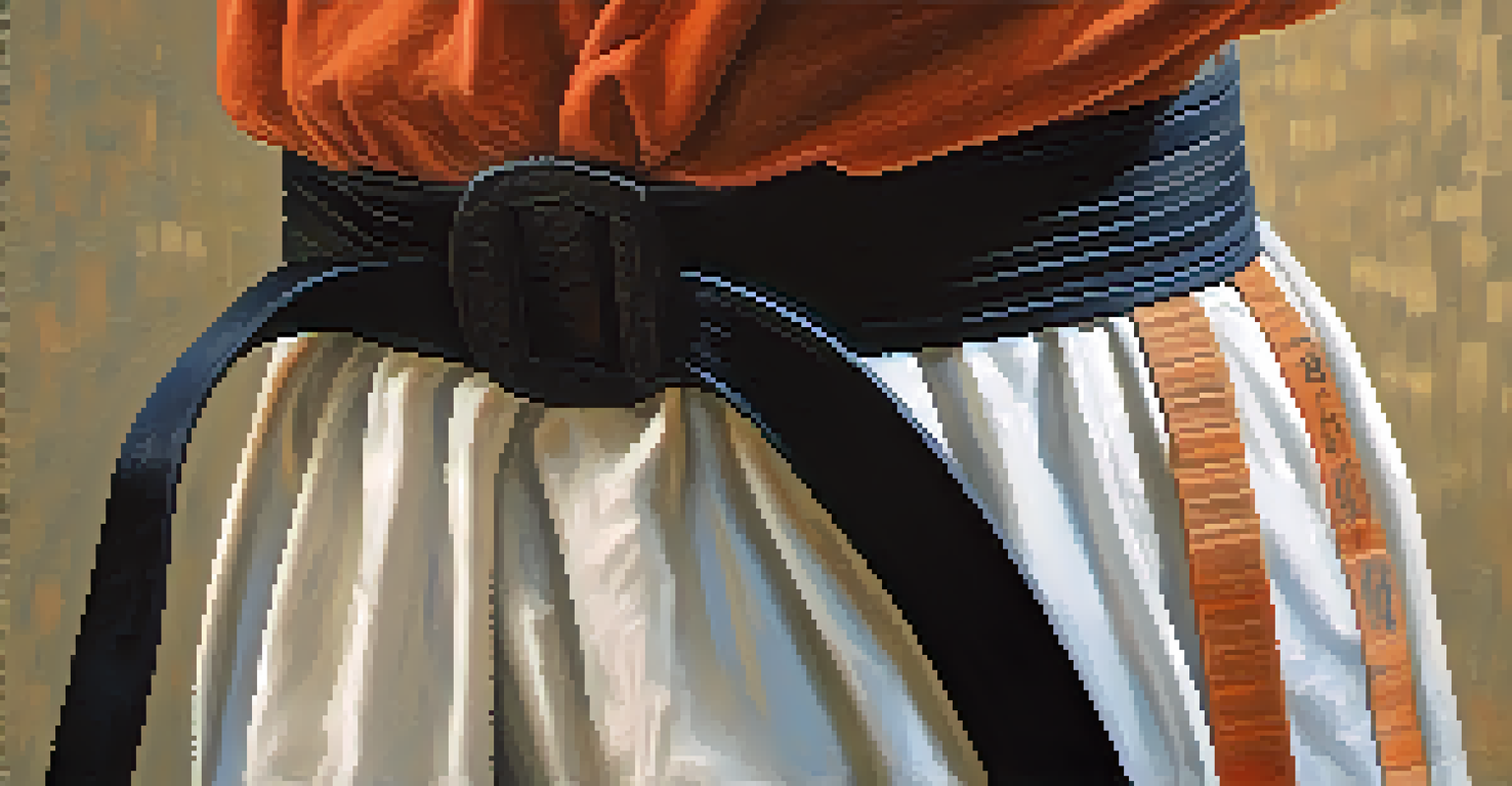Coping with Life's Challenges: Martial Arts as Therapy

Understanding Life's Challenges and Their Impact
Life is full of ups and downs, presenting us with various challenges that can feel overwhelming. From stress at work to personal relationships, these hurdles can take a toll on our mental and emotional well-being. It's essential to recognize how these challenges can manifest as anxiety, depression, or even physical health issues.
The greatest victory is that which requires no battle.
Many people seek ways to cope and find balance in their lives. Traditional methods might include therapy, medication, or support groups. However, not everyone finds these approaches effective or suitable for their needs, leading them to explore alternative forms of therapy.
This is where martial arts come into play. By combining physical activity with mental discipline, martial arts offer a unique way to address life's challenges, promoting both mental and emotional resilience.
Martial Arts: A Unique Form of Therapy
Martial arts encompass a variety of disciplines, such as karate, judo, and taekwondo, each offering its own set of skills and philosophies. At their core, martial arts emphasize self-discipline, focus, and respect, which can translate into valuable life skills. Practicing martial arts encourages individuals to confront their fears and develop a stronger sense of self.

Unlike conventional therapy that often involves sitting down and discussing issues, martial arts provide a dynamic and interactive approach. Participants engage in physical activities that require concentration and mindfulness, allowing them to channel their emotions constructively. This active involvement can promote a sense of accomplishment and boost self-esteem.
Martial Arts as Therapy
Martial arts provide a dynamic and interactive approach to coping with life's challenges by fostering physical activity, mental discipline, and emotional resilience.
Moreover, martial arts foster a supportive community that can be instrumental during tough times. Training with others creates bonds and friendships, providing emotional support and encouragement, which are crucial when facing challenges.
Building Physical Strength and Mental Resilience
One of the most immediate benefits of martial arts is the enhancement of physical strength and fitness. Engaging in regular training not only improves your body but also releases endorphins, the body's natural mood lifters. This physical activity can alleviate feelings of stress and anxiety, providing a sense of relief from everyday pressures.
Strength does not come from physical capacity. It comes from an indomitable will.
As practitioners learn new techniques and advance through the ranks, they also build mental resilience. The discipline required to master martial arts techniques teaches perseverance, as setbacks are often part of the learning process. This ability to push through difficulties can help individuals develop a more positive outlook on life.
In essence, martial arts become a metaphor for life's challenges—just as one must learn to fall and get back up in training, so too must we navigate life's obstacles. Each lesson learned on the mat can empower us to tackle issues off the mat.
Mindfulness and Emotional Regulation Through Training
Martial arts heavily emphasize mindfulness, which is the practice of being present in the moment. This focus can significantly help individuals struggling with racing thoughts or overwhelming emotions. By concentrating on their movements, practitioners can temporarily set aside their worries and find peace in the present.
Additionally, martial arts training often includes breathing techniques that facilitate emotional regulation. Controlled breathing can reduce stress and anxiety, allowing practitioners to respond to challenges calmly rather than react impulsively. This skill is essential not just in martial arts but in everyday situations.
Building Community Support
Engaging in martial arts cultivates a strong sense of community, offering camaraderie and accountability that helps individuals navigate personal struggles.
As individuals become more attuned to their emotions through martial arts, they may find they can manage stressors more effectively. This newfound emotional intelligence can pave the way for healthier relationships and improved coping mechanisms in all aspects of life.
Goal Setting and Achievement in Martial Arts
One of the foundational elements of martial arts is goal setting. From earning new belts to mastering specific techniques, each milestone represents personal progress. This focus on achievable goals can be particularly beneficial for individuals facing life's challenges, as it instills a sense of purpose and direction.
Setting and achieving goals in martial arts not only boosts confidence but also reinforces the idea that challenges can be overcome with effort and dedication. Each small success on the mat translates into a greater belief in one's abilities outside of martial arts, helping to tackle everyday problems with a proactive mindset.
Moreover, the structured nature of martial arts training provides a roadmap for personal growth. This framework can be particularly useful for those feeling lost or overwhelmed, as it offers a clear path to follow amidst the chaos of life.
Community and Support: Finding Your Tribe
Martial arts schools often cultivate a strong sense of community, where practitioners support and uplift one another. This camaraderie can be invaluable for individuals going through tough times, as sharing experiences with others can create a sense of belonging. Being part of a community allows individuals to feel less isolated in their struggles.
In addition, training with others fosters accountability. You’re more likely to show up for a class when you know your friends are there waiting for you. This mutual support can help individuals stay committed to their martial arts journey and, ultimately, their personal growth.
Goal Setting for Growth
The practice of setting and achieving goals in martial arts instills a sense of purpose and reinforces the belief that challenges can be overcome with dedication.
Finding your tribe in martial arts can also mean connecting with mentors who inspire and guide you. These relationships can provide invaluable insights and encouragement, helping you navigate both the martial arts journey and life's challenges.
Incorporating Martial Arts into Your Life
If you're considering martial arts as a therapeutic outlet, the first step is to find a style and school that resonates with you. Whether it’s the kicking and punching of karate or the fluid movements of Brazilian jiu-jitsu, there’s a discipline for everyone. Research local studios, attend trial classes, and see what feels right for you.
Once you’ve found the right fit, commit to regular practice. Consistency is key in martial arts, just as it is in any form of therapy. The more you engage, the more benefits you’ll reap, both physically and mentally. Remember, progress may come slowly, but every step forward is a victory.

Lastly, keep an open mind. Martial arts can be a transformative journey, teaching you lessons about resilience, discipline, and community. Embrace the challenges and enjoy the process, knowing that you're not just learning to defend yourself but also equipping yourself with valuable tools to navigate life’s obstacles.